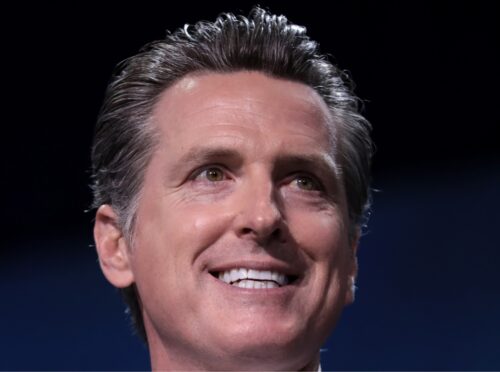China and Russia condemn sanctions, accuse West of ‘politicizing human rights issues’
The Chinese and Russian foreign ministers condemned Western nations for “politicizing human rights issues” with sanctions. Beijing separately lashed out at “the West,” accusing at least half a dozen nations of hypocrisy and saying they had no right to lecture China.

Yesterday, the European Union issued its first sanctions on China in over 30 years, joining the U.S., U.K., and Canada in attempting to punish Beijing for human rights abuses in Xinjiang. Australia and New Zealand today put out a joint statement with the same message, but did not issue sanctions, reportedly because they “lack Magnitsky-style laws.”
Today, Russia joined China in condemning sanctions that have been put on officials in both their countries, during a meeting of their foreign ministers in southern China.
- In a joint statement (in Chinese), the two countries condemned the practice of “politicizing human rights issues” and “interference in the internal affairs of sovereign states under the pretext of ‘promoting democracy.’”
- Russian foreign minister Sergey Lavrov earlier suggested that “Moscow and Beijing should work together to resist American sanctions by becoming more self-reliant in science and technology and moving away from the U.S. dollar for trade,” per the SCMP.
Also today, Beijing lashed out at Western countries, accusing at least half a dozen nations of hypocrisy and saying they had no right to lecture China.
- Beijing summoned Nicolas Chapuis, ambassador of the European Union to China, to tell him that the EU is “not qualified to play the role of ‘a human rights preacher,’” Xinhua reports.
- The Chinese Embassy in Canberra also released a statement accusing Australia of “double standards on human rights.”
A tour de force of whataboutism
Today’s press briefing from China’s Ministry of Foreign Affairs is one of the most aggressive on record to date. In remarks (English, Chinese) that spokesperson Huà Chūnyíng 华春莹 also blasted out on Twitter, the Foreign Ministry denied reports of abuses in Xinjiang as “nothing but lies and disinformation,” and then said the “ignoble record on human rights” of other countries disqualified them from criticizing China. Historical issues brought up include:
- The transatlantic slave trade, highlighting the roles of the U.S., the U.K., and France.
- The atrocities of former German regimes, including the slaughter of “indigenous Namibian tribes” and the Holocaust.
- The French colonization of Algeria.
- The “cultural genocide policies” of Canada starting in the 1870s.
Hua also took Beijing’s more common route of dismissing Western criticism of China by bringing up the recent military actions of the U.S. and others in Libya, Iraq, Afghanistan, and Syria.
A few other key quotes:
- The “above-mentioned countries” have “hoarded vaccines far in excess of their population’s needs, leaving developing countries struggling with insufficient vaccines.”
- “What those who practice group politics by forming cliques are pursuing is ‘pseudo-multilateralism.’ China upholds genuine multilateralism.”
- “Forced family separation is not happening in China’s Xinjiang, but in the United States,” Hua said, bringing up the U.S. migrant border camps.
- And:
Today’s China is by no means what it was 120 years ago. Gone are the days when the U.S. and Western countries thought they could force China to yield, compromise and surrender through rumors, lies, slander, attack and containment. They may not have the ability to choke China and will eventually pay a heavy price for their foolishness and arrogance.
See also:
- EU-China deal grinds into reverse after tit-for-tat sanctions / Reuters
- Secretary Antony J. Blinken and NATO Secretary General Jens Stoltenberg before their meeting / U.S. Department of State
NATO Secretary General Jens Stoltenberg: The “rules-based international order” is “being challenged by authoritarian powers like Russia and China.” - U.S. and EU to revive joint effort to handle more assertive China / FT (paywall)
“Antony Blinken, U.S. secretary of state, will relaunch the U.S.-EU China dialogue with Josep Borrell, EU foreign policy chief, on Wednesday in Brussels.” - Russia, China push for U.N. Security Council summit, lash out at West / Reuters
“Russia and China said on Tuesday they wanted a summit of permanent members of the U.N. Security Council amid what they called heightened political turbulence, with Moscow saying they both believed the United States was acting in a destructive way.”






